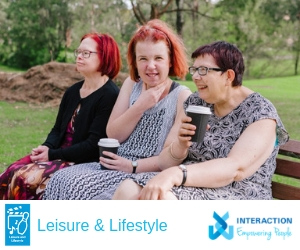You don’t have to feel awkward when talking to someone with intellectual disability.
Did you know that more often than not, you are more worried about what you’re going to say and how you’re going to say it, than the person with disability? Will you offend, embarrass, patronise? Overthinking things often comes into play when a person is not used to having regular contact with people who have disability.
Here’s some great tips to remember when speaking to a person(s) with disability:
- A person with disability is a person; first and foremost.
- Do you ever find yourself talking loudly to a person with disability? If they don’t have a hearing problem this is totally unnecessary.
- Patience is a virtue – it may take a little longer for the person you are speaking to when it comes to answering your question, or relaying exactly what they want to say, but they will get there in the end.
- If you cannot understand what has been said to you, don’t feel embarrassed about asking the person to repeat it. If the conversation is still not understood perhaps offer them a pen and paper to write down (if appropriate), or if they have a carer with them ask for assistance (only once you have queried it with the person themselves).
- Eye contact – if you’re speaking within a group of people, make sure you also make eye contact and acknowledge the person with disability, not just the others in the group.
- Unless the person (or people) with disability has done something extraordinary, try to refrain from calling them things like ‘inspirational’. Would you call another person inspirational just for living their life?
- Treat a person with disability how you would treat others, don’t expect that they are going to require assistance every step of the way. Offer assistance only if you feel the person needs it, or the person asks for it.
- Please don’t use old school offensive words like ‘handicap’, ‘invalid’ etc.
- It’s not up to you, the carer or family member as to what a person with disability is capable of doing or not doing. Engage with the person themselves and ask what they do and do not feel comfortable with.
In summary – relax – keep a sense of humour, people with disability have a sense of humour too! If you feel you may have offended, then offer an apology, just like you would anyone else. Don’t focus on the disability – focus on the person.








